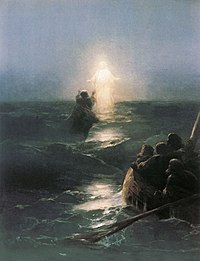XXIV SUNDAY IN ORDINARY TIME - Matthew 18:21-35
There is a Bemba proverb that says: Umulandu taubola (a case never gets rotten). meaning that it never goes cold. The perpetrator of a crime may escape and hide, waiting for the case to be forgotten, but he is caught when he less expects. If someone has grievously offended another person, that insult will not be forgotten and will go on poisoning any relationship between them. In Bemba culture, the offender has to recognise his evil deeds, apologise and ask for forgiveness for his case to be solved. When the case is discussed and a solution is found, leading to reconciliation, the offender is accepted back in the family or the community and people will stop referring to that case.
In the prevalent culture of our times, justice has become revenge, never giving time and space for repentance and conversion. In the society we live in, there is no place for pardon. Whoever does not conform to the accepted values must be mercilessly destroyed. The social media investigates, accuses, judges and condemns. The traditional norm that someone is innocent until proven guilty does not apply. And as Christians, we may easily behave in the same way, accepting the ideological new trend of cancel culture. Anything that has any flavour of past values is thrown overboard, being despised and condemned. Compassion and forgiveness are considered signs of weakness and have no place in a society that has no place for any kind of phobia. Any effort to facilitate the redemption of the sinner is considered connivance and it must be punished. However, Jesus came to bring redemption, reconciling us with God. All of us need redemption since all of us are sinners. Reconciliation with God and with others is only possible through forgiveness. Those who think of themselves as righteous, in their pride judge and condemn the others. By doing so, they pass judgment on themselves.
Whenever we pray “Our Father”, we ask the Lord to forgive our trespasses as we forgive those who trespass against us. This Sunday’s gospel illustrates the theme of forgiveness and reconciliation. Jesus tells the parable of the unforgiving servant. In the parable, we are called to reflect upon the contrast between God’s forgiveness and human forgiveness. The forgiveness granted by God is total and free, even though we do not show proper repentance. The servant who owed a huge amount to his lord did not ask to be forgiven. He asked for more time, trying to postpone the payment and delay the punishment. Despite that, he was forgiven the whole debt, out of compassion. Being forgiven, he was not able to forgive, even a small amount. To his fellow servant, he acted with a violent rage. Instead of compassion, he showed wickedness and for that, he was punished.
Lord, fill us with your Spirit so that we may forgive wholeheartedly with joy and with thanksgiving.




